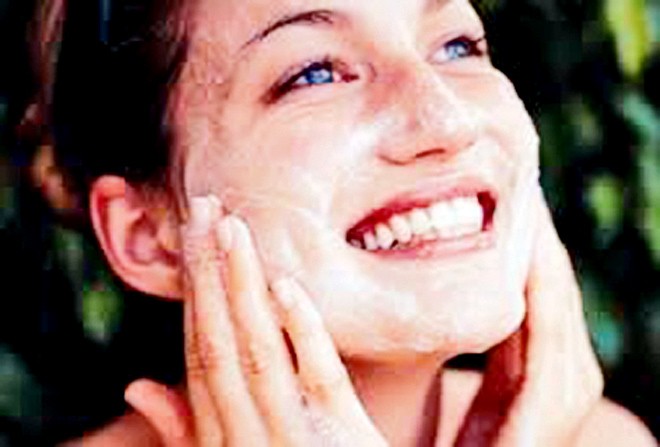

We’ve gone on and on about beauty tips and tricks that you should try at home but seldom have we spoken about beauty advice you should steer clear of. The internet can be a whirlpool of terrible ideas that range from the tediously ineffective to the absolutely dangerous. The idea for this piece came to us when we realized that while the charcoal trend was taking over beauty circles, there were certain beauty bloggers encouraging people to add glue to charcoal to make masks at home. Just… no. This was where we decided that some products are just not meant to go on your face and it was time we took it upon ourselves to debunk certain beauty theories floating around the web.
Exfoliating with baking soda
We know that baking soda is great for your teeth and has the power to clear up your teeth immediately. However, just because those little particles seem like they could scrub skin well doesn’t mean they should. Baking soda can affect the pH level of your skin and because your skin is naturally acidic and baking soda is highly alkaline it can disrupt your skin balance. Baking soda is generally used in the bathroom or kitchen to clean up grit and dirt - we’ll just leave you with that thought.
Eggs on your face
Eggs have been popularized in beauty circles as DIY hair mask ingredients. Now, egg whites have started popping up in DIY face masks for tightening effects but this could get real dangerous. Firstly, it can clog the pores and increase the possibility of breakouts for those who have acne prone skin. Other side effects include the spread of bacteria on the skin, as raw egg whites contain salmonella, bacteria that can cause food poisoning.
Putting toothpaste on pimples or popping them with a safety pin
Every teenager going through puberty will try anything to get rid of those nasty zits that come and colonize your face like nobody’s business. Growing up in the internet age means everyone has tried putting toothpaste on a zit at least once but this can dry skin out immediately. Toothpaste isn’t cheap, so don’t waste it on your face. Besides, one shouldn’t be popping pimples at all, let alone with a sharp, unsterilized metal object. When you break the skin, the bacteria that’s on your face can penetrate it.
Lightening skin with lemon
Just as citrus can act like a homemade Sun In and lighten your hair, it can brighten dark spots. However, lemons can also have some dire consequences with a condition called Phytophotodermatitis, which occurs when you have citrus on your skin and are then exposed to the sun. This can cause an allergic reaction with blisters and inflammation. Here’s a solution: avoid lightening your skin altogether.